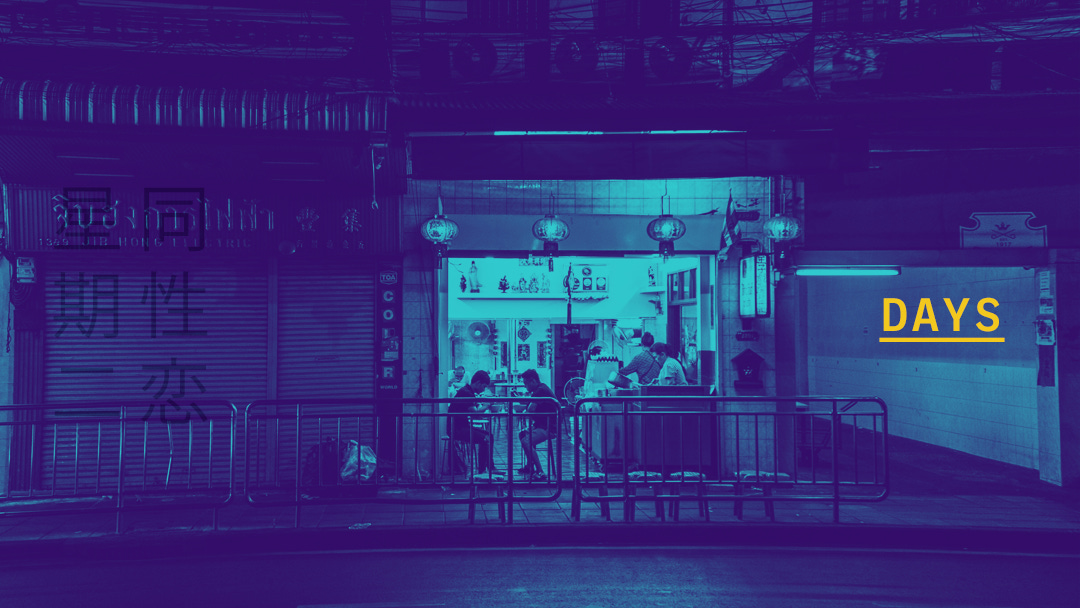Review: Days
The essay below was originally published on December 21, 2021.
Welcome to Tongzhi Tuesday, a series where I’ll be reviewing queer Asian and AAPI content in whatever form that may come in, whether it be movies, TV, music, or the occasional manhua. Subjects and tone will range from comical to serious, depending on my mood. Yes, this is a veiled excuse to talk about the things I like. Want to suggest something for me to review? Leave me a comment below or email me at lindaiyupro@gmail.com.
tongzhi (同志): lit. “same aspiration,” meant to denote “comrade” but has been adopted by the Mandarin-speaking LGBTQ+ community to mean “gay” or “queer”
Days is a film of longing. Of loneliness, of the peculiar experience of being alone. The film’s title in Mandarin, 日子, can be translated to “days” — but is more commonly used to mean “life, livelihood.” As in, the common activities you do that make up your days. This translation is, I feel, a more accurate descriptor of the film. Days seems to ask us, how does one fill a life? And what does it mean when your life is filled with emptiness?
This film is not for the cinematic tourist. It barely has any dialogue, and what little dialogue it does have (spanning several different languages) remains unsubtitled. Moreover, the camera lingers. Takes and scenes can last minutes without very much happening in-frame. This is par for course for director Tsai Ming-Liang. Though Taiwan boasts many masters of slow cinema (Hou Hsiao-Hsien and Edward Yang, for example), Tsai is chief among them; in fact, he has made a name for himself with his unwillingness to move the camera or make a cut. Stray Dogs, perhaps Tsai’s most well-known film, famously contains a fourteen-minute take of the protagonist staring at something we can’t see off-camera.
Despite the daunting (and sometimes unforgiving) nature of Tsai’s films, this is not a cinema of endurance. Instead, it is one of immersion. Days does exactly what it says on the tin and takes us through the daily lives of Kang (Lee Kang-sheng), a middle-class Taiwanese man who regularly tends to a goldfish pond outside of his mansion, and Non (Anong Houngheuangsy), a lower-class Thai sex worker who likes to cook. Both live alone, and go through their routines without speaking to many other people, hence the lack of dialogue in the movie. At some point, their paths cross, and when they separate, they are alone again. But the intimacy of their briefly shared moment lasts long after their parting. Kang and Non’s impact on each other has, in turn, a strongly felt impact on the rest of the film, and we wonder if they are even more alone now, now that they have known the other.
What is remarkable about Lee Kang-Sheng, Tsai’s frequent collaborator, is his unique ability to act as a blank slate. His expression is often so neutral that you, the audience, can project anything you want onto it. In the absence of dialogue, Tsai often tasks his viewers with filling in the silence with their own thoughts, so it’s the subtext and small movements that matter the most in Days. We see that Kang is plagued by a persistent neck pain (akin to his character in The River nearly 30 years earlier), so we believe him miserable, at the mercy of his own body. When he goes to receive a moxibustion treatment (a type of acupuncture that involves burning mugwort at the top of the needles), it burns him. He wanders through a packed city with a neck brace, one arm raised to keep it in place. We project: loneliness. A kind of loneliness that strikes so deep, one must even suffer a neck crick alone.
Kang schedules a full-body massage, ostensibly for his neck pain. But one does not involve the whole body for a localized problem: he prepares for the massage at an anonymous hotel room, and strips down to nothingness before the masseuse, our very own Non, arrives. This is not a cure for his neck, but for that deep, untouchable part of Kang that yearns to be touched. For the next twenty minutes or so, we are invited to witness an incredible act of intimacy between two strangers. Non works Kang’s back in a way that is methodical and yet charged with inherent eroticism. The massage is so comfortable that Kang groans — out of pleasure, out of pain, out of both. It is the first time in the movie that Kang’s face emotes quite this much, and you get the sense that he, just like his musculature, is loosening under the duress of Non’s hands. When the massage does eventually turn sexual, it becomes instead a display of care and affection. Through this one sequence, Tsai is able to break down the idea of touch into its component parts. Here, he says — it can be tender, it can be sensual, it can be somewhere in between, it can be all of these things, and more.
Days is certainly a queer film, but it is not a capital-Q Queer film — that is to say, this is not an issues film. Tsai, who is queer himself, employs a knack for implying his characters’ sexualities incidentally, so much so that when gay sex or longing occurs, there’s nothing shocking about it. The more notable trademark of Tsai’s characters is that they always have difficulty with connection or communication. In Days, that formula is reversed. Kang and Non have no trouble at all forming an intense relationship, even without the buttress of language. It is rather its brevity, that fleeting and ephemeral fulfillment, that is the film’s lament.
Days is streaming on MUBI until January 12, 2022.




